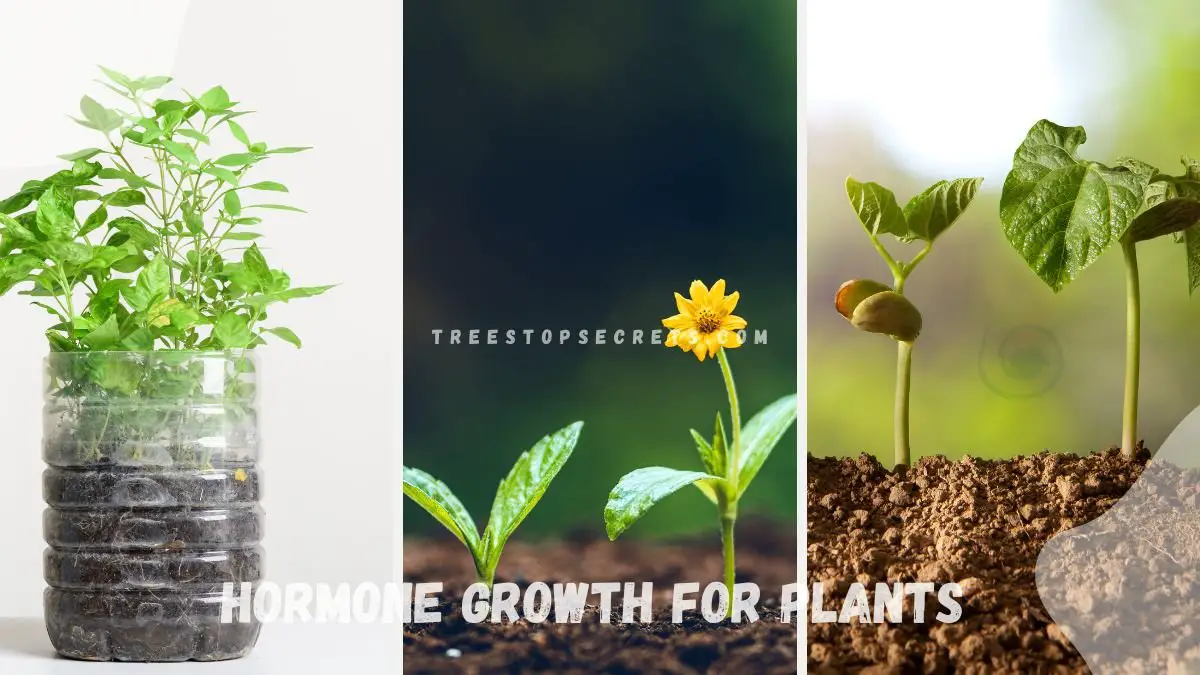Understanding hormone growth for plants is crucial for any gardener or agriculturist aiming to enhance plant health and productivity. These complex plant hormones, including cytokinin, play a vital role in regulating various physiological processes in plant organs, including growth, development, and response to environmental stimuli. Whether you're nurturing houseplants or cultivating crops, knowledge of plant hormones can significantly improve your success in fostering healthy, vigorous plants.
Plant growth hormones, or phytohormones, include auxins, gibberellins, cytokinins, abscisic acid, and ethylene. Each hormone has a distinct function: auxins stimulate root growth and elongation, gibberellins promote stem and leaf growth, cytokinins encourage cell division and shoot formation, abscisic acid helps plants cope with stress by inhibiting growth, and ethylene influences fruit ripening and leaf abscission. Together, these hormones interact in complex ways to control growth and development throughout a plant's life cycle, responding to both internal cues and external conditions.
There’s so much more to discover about the fascinating interactions and applications of plant hormones. Dive deeper into how these natural growth regulators can optimize your gardening or farming practices and boost your plants' health and productivity.
Key Takeaways
- Understanding Plant Hormones: Plant hormones play crucial roles in growth and development, influencing various processes within plants.
- Actionable Insight: Adjusting the levels of specific hormones can impact plant growth and responses to the environment.
- Hormonal Effects on Growth: Different plant hormones have distinct effects on growth, such as promoting cell elongation or controlling flowering.
- Molecular Mechanisms: Delving into the molecular mechanisms of plant hormones provides insights into how they regulate physiological responses.
- Synthetic Applications: Synthetic plant hormones are utilized in agriculture to enhance crop yield and improve stress tolerance.
- Relevance to Gardeners: Gardeners can benefit from understanding plant hormones to optimize plant growth, flowering, and overall health.
Discovering Plant Hormones
Early Research
Plant growth hormones have been a subject of extensive research. Scientists conducted experiments on coleoptiles, the sheath protecting a young shoot tip, to understand plant growth better. Through these experiments, they discovered the significant impact of light on plant development.
In their studies, researchers also demonstrated the propagation of phototropic stimuli in oat coleoptiles. This finding shed light on how plants respond to light sources and adjust their growth patterns accordingly.
Key Discoveries
One crucial discovery was understanding how a chemical messenger diffuses from the tips of coleoptiles to influence growth in plants. This process plays a vital role in coordinating various growth responses in plants.
Moreover, scientists discovered auxin as a growth-promoting hormone that regulates various aspects of plant development. This hormone is essential for cell elongation, root formation, and fruit development in plants.
Furthermore, researchers successfully isolated and determined the chemical structure of indole-3-acetic acid (IAA), a type of auxin that plays a pivotal role in regulating plant growth and development processes.
Hormone Types and Functions
Overview of Classes
Auxins, crucial for growth coordination in plants, exhibit morphogen-like traits and influence plant behavioral processes. They are pivotal for regulating various growth aspects in plants.
Growth and Development
Auxins actively participate in cellular growth by impacting cell division, expansion, and differentiation. These hormones play a vital role in determining the fate of cells within the plant structure.
Response Mechanisms
Auxin triggers significant changes in gene expression through intricate molecular mechanisms. It governs gene expression by engaging perception mechanisms and signaling modules to orchestrate plant responses.
Molecular Mechanisms
Hormonal Activity
Hormones are crucial for plant development at all levels, influencing various growth processes. They promote different cellular growth types and impact gene expression upon cell contact. These molecules play a vital role in shaping the overall structure and function of plants.
Auxin Signaling
Auxin signaling involves Aux/IAA and ARF signaling modules, which regulate gene expression to control plant growth and development. This mechanism influences how plants respond to their environment and adapt to different stimuli, ensuring optimal growth and survival.
Ethylene Biosynthesis
Ethylene biosynthesis plays a significant role in regulating plant growth, affecting numerous physiological processes within the plant. It influences critical stages such as fruit ripening and senescence, demonstrating its importance in the plant's life cycle.
Hormones in Plant Organization
Hormones play a crucial role in organizing and coordinating various growth processes in plants.
Organ Patterns
- Auxin diffusion occurs along the shaded side of plants, promoting cell elongation.
- This process causes cellulose breakdown, facilitating cell expansion for growth.
- Auxin also influences both axial elongation (vertical growth) and lateral expansion (horizontal growth) in plants.
Auxin Transport
- Polar auxin transport is involved in directing auxin flow within plant tissues.
- It plays a key role in regulating auxin distribution throughout the plant.
- Proper auxin transport is essential for overall plant growth and development.
Apical Dominance
- The phenomenon of apical dominance involves the control of lateral bud growth by the apical bud.
- It regulates the dominance of the apical bud over the lateral buds in determining plant growth patterns.
- Apical dominance significantly influences the overall architecture of plants, shaping their form and structure.
Hormonal Effects on Growth
Root Development
Auxins, a type of plant hormone, are pivotal for root growth. They control both root elongation and branching, shaping the root system architecture. This hormone is essential for healthy root development.
Fruit Growth
Fruit development is heavily influenced by auxins. They determine factors like fruit size and shape, playing a critical role in the ripening processes of fruits. Proper auxin levels are crucial for optimal fruit growth.
Flowering Process
In the flowering process, auxins are key players in inducing flowering and regulating the development of floral organs. They have a significant impact on flower formation, ensuring successful reproduction in plants.
Synthetic Applications
In the realm of horticulture, synthetic compounds play a vital role in enhancing plant growth and development. Auxins, a type of plant hormone, are extensively utilized in horticulture for various purposes. They are primarily employed in plant propagation to stimulate root formation in cuttings. This process is crucial for multiplying plants efficiently and rapidly.
Moreover, auxins are instrumental in enhancing fruit set and development. By applying synthetic auxins, horticulturists can boost the yield and quality of fruits. These compounds help regulate the physiological processes within plants, leading to improved fruit production. The precise application of auxins contributes significantly to the overall success of fruit cultivation.
Understanding Plant Hormones
Perception and Impact
Plant hormones play a crucial role in triggering signaling pathways within the plant's system. They are vital for influencing plant growth and development by regulating various physiological processes. For instance, auxin, one of the major plant hormones, is involved in regulating gene expression to elicit specific responses in plants.
- Auxin perception: Initiates signaling pathways.
- Influences growth: Essential for plant development.
- Regulates gene expression: Determines specific plant responses.
Cellular Level Insights
At the cellular level, plant hormones like auxin are essential for promoting cell growth. They play a significant role in affecting cell division and expansion, ultimately contributing to cell differentiation and fate specification within the plant.
- Cell growth: Auxin supports cell expansion.
- Cell division impact: Influences plant structure.
- Differentiation contribution: Specifies cell fate.
Advanced Topics in Plant Hormones
Wound Response
Plant hormones, specifically auxins, are crucial for plant wound healing. They actively stimulate cell division near the site of injury, aiding in the formation of new cells. This process is essential to promote tissue regeneration after damage occurs.
- Auxins facilitate cell growth and differentiation at the wound site.
- They help in forming a protective layer to prevent infections.
- The hormone's presence triggers a series of events that lead to wound closure.
Seed Dormancy
Auxins are also involved in seed dormancy regulation, influencing the germination processes of seeds. By breaking seed dormancy, auxins initiate the growth of plants from seeds.
- Auxins regulate the balance between seed dormancy and germination.
- They control the timing of seed germination based on environmental cues.
- The hormone's action ensures that seeds germinate when conditions are favorable for plant growth.
Final Remarks
Understanding the intricate world of plant hormones is key to unlocking the secrets behind plant growth and development. From the diverse types and functions to the underlying molecular mechanisms, these hormones play a crucial role in shaping how plants organize, grow, and respond to their environment. By delving into advanced topics in plant hormones and exploring their synthetic applications, you gain a deeper insight into the fascinating realm of plant biology.
Now equipped with a comprehensive understanding of plant hormones, you are empowered to apply this knowledge to enhance your gardening practices, boost crop yields, or even contribute to scientific research in this field. Take action today by experimenting with different hormone treatments in your garden or sharing your newfound knowledge with fellow plant enthusiasts. Embrace the transformative power of plant hormones and witness the remarkable effects they can have on botanical life.
Frequently Asked Questions
What are plant hormones and their functions?
Plant hormones are chemical messengers that regulate various aspects of plant growth and development. They control processes like growth, response to environmental stimuli, and reproduction in plants.
How do plant hormones affect growth?
Plant hormones influence growth by regulating cell division, elongation, and differentiation. They also control various developmental processes such as seed germination, flowering, and fruit ripening.
What are the different types of plant hormones?
The main types of plant hormones include auxins, gibberellins, cytokinins, abscisic acid, ethylene, and brassinosteroids. Each hormone plays a specific role in plant growth and development.
How can synthetic plant hormones be used in agriculture?
Synthetic plant hormones can be used in agriculture to manipulate plant growth, improve crop yields, enhance stress tolerance, and regulate flowering. They are applied in controlled amounts to optimize plant performance.
Why is understanding plant hormones important for farmers and gardeners?
Understanding plant hormones helps farmers and gardeners make informed decisions about managing crop growth, responding to environmental stresses, promoting flowering, and overall optimizing plant health and productivity.
Image Source: Paid image from CANVA




